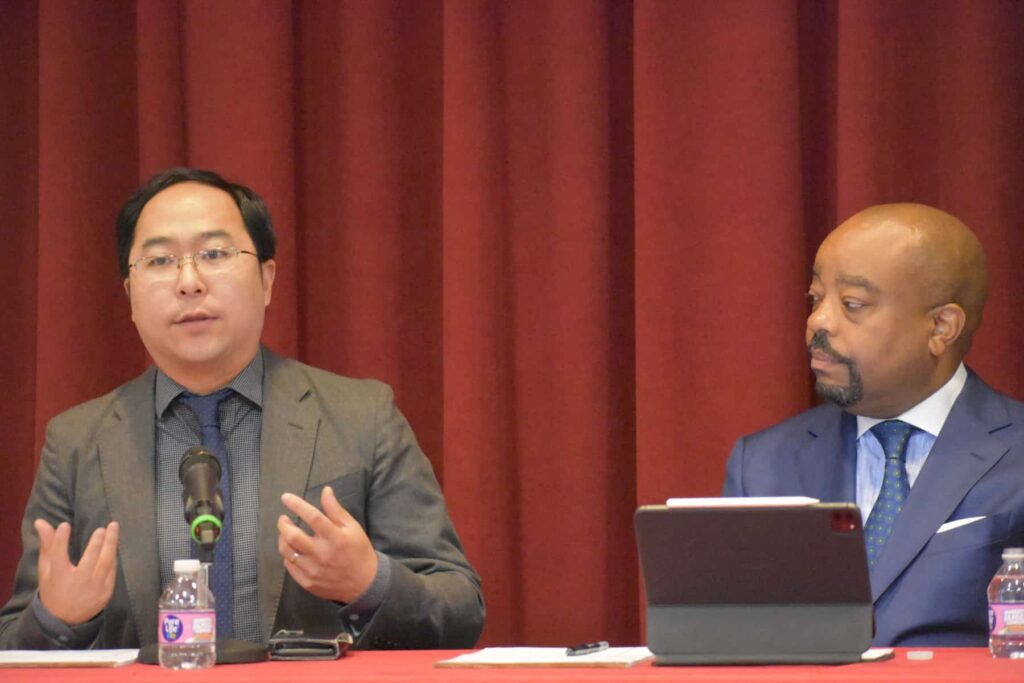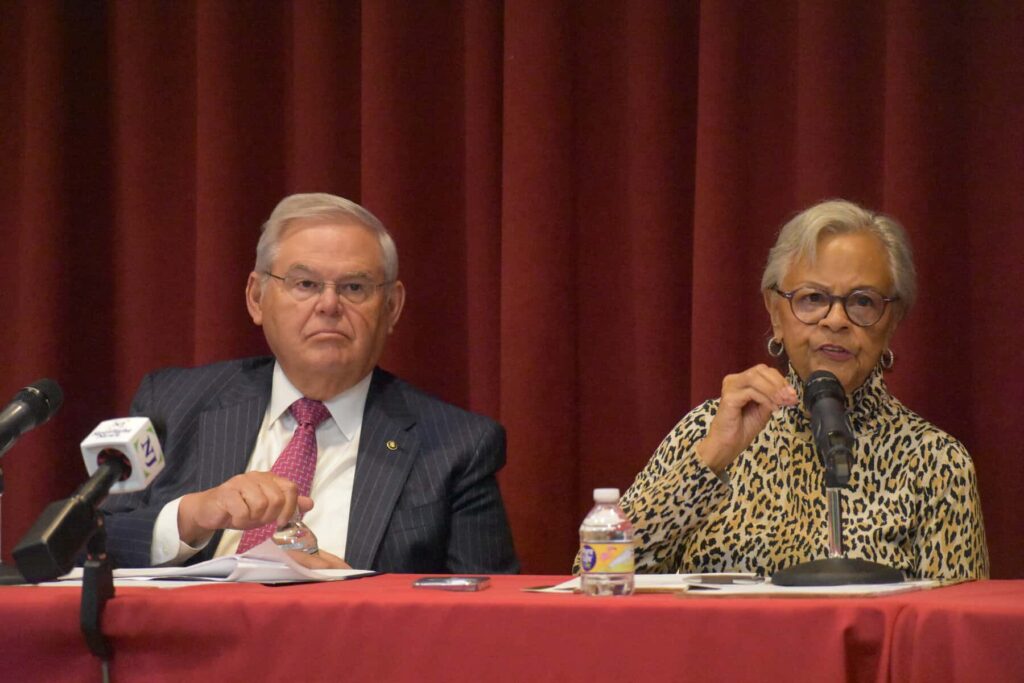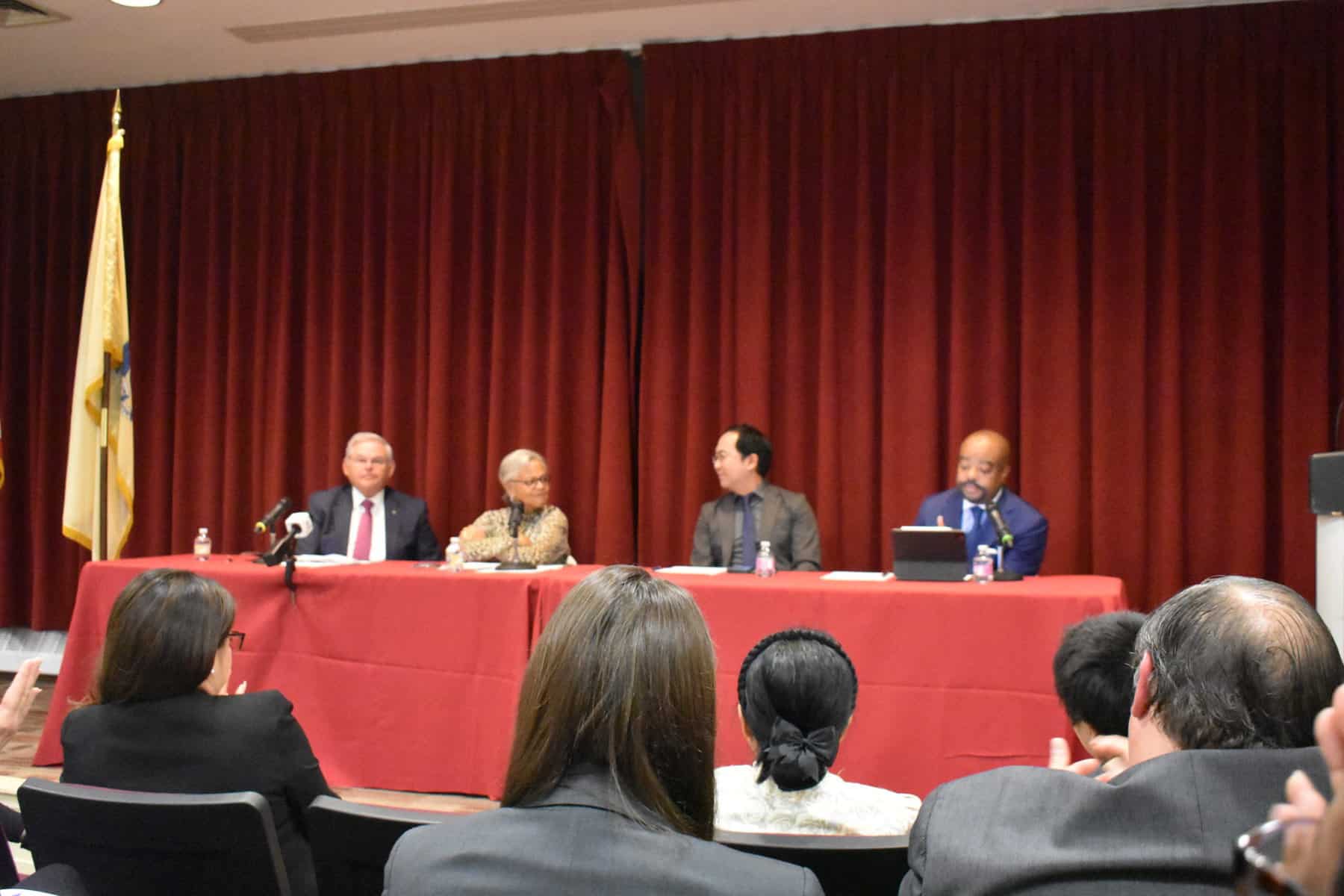Dignitaries listened to the needs and experiences of New Jersey mental health advocates and providers at Rider University
America’s growing mental health crisis that was made worse from the impacts of COVID-19 has mental health advocates, providers, and lawmakers pushing for more resources.
In New Jersey, three members of the state’s Congressional delegation – Sen. Bob Menendez (D-NJ), Rep. Bonnie Watson Coleman (D-12), and Rep. Andy Kim (D-3) – joined together to hear the needs and experiences from New Jersey mental health advocates and providers at Rider University May 22.
“According to the National Alliance on Mental Illness [NAMI], one in five adults in America experience a mental health disorder each year. Less than 20 percent of them are receiving care,” said Michael Lindsey, Dean of the New York University Silver School of Social Work and panel moderator.
Through a panel discussion and listening session, the federal lawmakers discussed the efforts being taken federally on the issues – not enough providers for mental health services, more funding for veteran suicide outreach and prevention programs, and more access to care and services for communities of color.


“There is a lot we need to think about in terms of what is the right workforce level we need as a country in terms of mental health providers and other types of roles,” Kim said. “I do feel like the federal government must do, which we are just not doing well enough, work with [providers and advocates] and others to develop that national strategy.”
New Jersey has 1.1 million adults that have a mental disorder and 72,000 New Jerseyans between the age of 12 and 17 have depression, according to NAMI’s (National Alliance on Mental Illness) available data from 2021.
“The provider issue is a big issue. Cause when you finally get the courage to pick up the phone and say I need help, waiting six weeks is not the answer,” Menendez said. “We need to have people have access in a very brief time.”
Menendez said hearing from providers, it is not only about expanding universal providers but retaining those providers.
“Which means we have to pay them appropriately. That is one dimension,” he added. “The other dimension is that we have a lot of good community groups that can do culturally competent work that have an acceptance particularly by young people.”
Menendez said they have to empower these groups and help resource them as part of the overall challenge.
“I am dismayed by listening to people from the (military) base suggesting that if you acknowledge that you have PTSD (Post Traumatic Stress Disorder), then all of a sudden that is a career ender,” he said. “That should never be a career ender. It should be the beginning of helping you get well.”
This month, Menendez reintroduced a companion bill in the Senate to Coleman’s bill she co-leads in the House of Representatives called the “Pursuing Equity in Mental Health Act,” which addresses mental health for youth, and youth of color, and disparities in access to mental health.
Kim is a co-sponsor on the bill in the House that was also reintroduced in May. The bill had previously passed the House most recently in 2021 but was not voted on in the Senate.
This bill would provide $995 million in grants and funding that will go toward supporting research, improving the pipeline of culturally competent providers, building outreach programs reducing stigma, and develop a training program for providers to manage disparities, explained Kim.
“I think this is one of the areas that we will get bipartisan support,” he said. “It is my hope that the original conversation we have had as we are seeking to introduce the legislation seems to have attracted some Republican support.”
Menendez noted that they need to get the bill as broad as possible, so it could be included as one of the must pass bills, such as the National Defense Authorization Act or Omnibus Appropriation bill that will pass this current session of Congress.
Coleman shared how providers and advocates expressed layers of concern in service, delivery and needs during the listening session.
“These resources are vitally important but getting them through a legislative process it just takes so long that we need to figure out how to get resources to people sooner,” she said.
Coleman said they need to understand the different layers of need from providers with disabilities, who are paid subpar wages and can’t afford their own medication to people who are volunteering a service but need service themselves as a result of working in that space.
“From the very young to the students in college they need space to feel safe and have confidential conversations, but we need to have them before learned ears,” she added.
For Coleman, the bottom-line is that minimally the bill, Pursing Equity in Mental Health, needs to be passed in its entirety, which has nearly $1 billion resources.
“But even passing that $1 billion is a drop in the bucket, because this country has not dealt with mental health the way it should as an issue of the continuum of healthcare,” she said.

